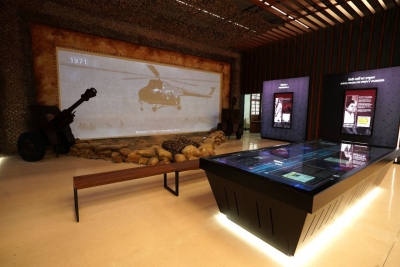New Delhi: The Nehru Memorial Museum and Library is located in the capital’s Teen Murti House, which remained the official residence of independent India’s first Prime Minister Jawaharlal Nehru for almost all his tenure and life.
Designed by Robert Tor Russell and built-in 1929 as part of Edwin Lutyens’ imperial capital to serve as residence of the British Indian Army’s Commander-in-Chief, the Flagstaff House, renamed Teen Murti House, became the resident of Nehru right after the last British Commander-in-Chief left in August 1948 till his death on May 27, 1964,
Later, it was decided that Teen Murti House should be dedicated to Nehru and a museum and a library should be set up. On November 14, 1964, on Nehru’s 75th birth anniversary, the then President Dr Sarvepalli Radhakrishnan, formally dedicated the Teen Murti House to the nation and inaugurated the Nehru Memorial Museum.
On April 1, 1966, the government established the Nehru Memorial Museum and Library Society to manage the management of the institute, which today remains a major research centre for the Indian public and a platform for various activities.
In view of the increasing volume of research material, an annexe building was constructed in 1989. In 1990, the Centre for Contemporary Studies was established in this building as a new unit of Nehru Memorial Museum and Library.
All the items related to the first Prime Minister of India have been kept in the Nehru Memorial Museum.
Many governments came and went gone but no attention was paid to its renovation. The Narendra Modi government not only renovated the Nehru Memorial Museum, but also established the Prime Ministers’ museum in this campus. Different galleries of all the Prime Ministers from the first Prime Minister of India to the present day were built and this entire building was constructed in a modern manner.

